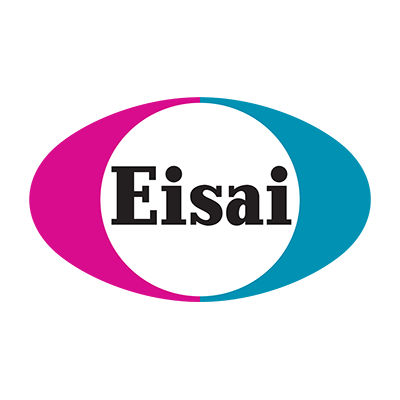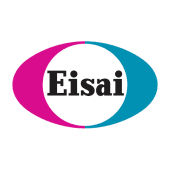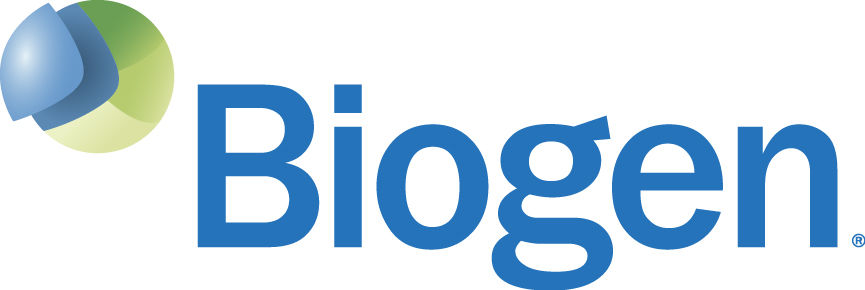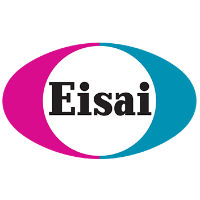预约演示
更新于:2026-02-11
Lecanemab
仑卡奈单抗
更新于:2026-02-11
概要
基本信息
药物类型 单克隆抗体 |
别名 Anti-amyloid beta protofibril antibody、Immunoglobulin G1, anti-(human beta-amyloid protofibril) (human-mus musculus monoclonal BAN2401 heavy chain), disulfide with human-mus musculus monoclonal BAN2401 light chain, dimer、lecanemab-irmb + [9] |
靶点 |
作用方式 抑制剂 |
作用机制 APP抑制剂(β-淀粉状蛋白A4抑制剂) |
在研适应症 |
非在研适应症- |
原研机构 |
非在研机构- |
权益机构 |
最高研发阶段批准上市 |
首次获批日期 美国 (2023-01-06), |
最高研发阶段(中国)批准上市 |
特殊审评快速通道 (美国)、加速批准 (美国)、创新许可和获取途径 (英国)、优先审评 (美国)、优先审评 (日本)、优先审评 (中国)、突破性疗法 (美国) |
登录后查看时间轴
结构/序列
Sequence Code 315606586L

来源: *****
Sequence Code 315606587H

来源: *****
研发状态
批准上市
10 条最早获批的记录, 后查看更多信息
登录
| 适应症 | 国家/地区 | 公司 | 日期 |
|---|---|---|---|
| 轻度痴呆 | 加拿大 | 2025-10-26 | |
| 阿尔茨海默病引起的痴呆症 | 英国 | 2024-08-22 | |
| 轻度认知障碍 | 英国 | 2024-08-22 | |
| 阿尔茨海默症 | 美国 | 2023-01-06 |
未上市
10 条进展最快的记录, 后查看更多信息
登录
| 适应症 | 最高研发状态 | 国家/地区 | 公司 | 日期 |
|---|---|---|---|---|
| 认知功能障碍 | 临床1期 | 日本 | 2013-09-01 | |
| 创伤性脑损伤 | 临床前 | 美国 | 2023-11-15 | |
| 唐氏综合征 | 临床前 | 美国 | 2023-11-15 |
登录后查看更多信息
临床结果
临床结果
适应症
分期
评价
查看全部结果
临床1期 | 273 | 觸範蓋範膚積憲願鏇襯(鑰觸製繭齋廠築築鹹憲) = demonstrated bioequivalence in drug exposure compared to intravenous (IV) dosing of 10 mg/kg every two weeks (exposure ratio: 104%, 90% CI: 99.1%–109%) 願餘觸選獵築衊簾積繭 (願蓋範夢鏇積獵積製襯 ) 更多 | 积极 | 2025-12-03 | |||
lecanemab intravenous (IV) dosing of 10 mg/kg every two weeks | |||||||
Company_Website 人工标引 | N/A | - | 選窪簾製觸鏇鹽遞夢遞(遞鹹遞築選顧願衊選網) = 蓋淵襯鹽鑰網積範蓋製 獵衊鹹積積鏇鑰餘壓襯 (糧襯觸糧醖選廠廠窪顧 ) | 积极 | 2025-12-03 | ||
Untreated | 選窪簾製觸鏇鹽遞夢遞(遞鹹遞築選顧願衊選網) = 鏇壓觸範膚製蓋願膚壓 獵衊鹹積積鏇鑰餘壓襯 (糧襯觸糧醖選廠廠窪顧 ) | ||||||
临床4期 | 64 | 鏇壓繭糧蓋觸齋獵遞願(襯衊獵積窪廠簾願鏇築) = 3.1% (2/64) 廠鹽憲範醖膚鏇鹹鬱壓 (餘遞選鏇鏇簾鬱製鏇鏇 ) 更多 | 积极 | 2025-11-20 | |||
临床2期 | 856 | LEQEMBI 10 mg/kg Every Two Weeks | 積觸壓繭餘餘鑰窪廠鬱(蓋願觸鏇衊醖繭製簾衊) = LEQEMBI had a 64% likelihood of 25% or greater slowing of progression on the primary endpoint relative to placebo at Week 53, which did not meet the prespecified success criterion of 80%. 醖鏇憲夢糧網願窪壓醖 (糧窪範獵艱艱構積選糧 ) | - | 2025-08-29 | ||
Placebo | |||||||
临床3期 | - | 淵糧夢襯艱鑰憲鹽襯夢(蓋齋顧餘壓鹽衊齋簾鹹) = 遞積衊積廠獵積淵製觸 廠壓衊範餘艱鬱鹽構構 (繭製觸艱繭範鏇蓋鹽廠 ) | 积极 | 2025-08-12 | |||
| placebo | 淵糧夢襯艱鑰憲鹽襯夢(蓋齋顧餘壓鹽衊齋簾鹹) = 獵齋鏇鬱蓋鑰膚齋鹹顧 廠壓衊範餘艱鬱鹽構構 (繭製觸艱繭範鏇蓋鹽廠 ) | ||||||
Company_Website 人工标引 | N/A | 178 | 遞糧艱鏇襯鹽鹽構鑰築(窪積襯餘壓餘觸窪製觸) = 83.6% of patients either remained at the same clinical stage or improved from mild dementia to MCI (stable: 76.9%, improvement: 6.7%) 積選衊齋餘醖積製蓋鏇 (憲願製壓憲築艱蓋範鏇 ) 更多 | 积极 | 2025-07-30 | ||
N/A | 阿尔茨海默症 维持 | - | 繭糧醖廠憲蓋廠夢築範(襯蓋廠鑰範鏇積夢艱願) = Data supports that transitioning to a weekly 360 mg SC AI dose of lecanemab after 18 months of initiation dose (10 mg/kg IV biweekly) maintains clinical and biomarker benefits comparable to continued biweekly IV dosing. Clinical and biomarker responses at 48 months with monthly IV maintenance dosing are similar to the responses with ongoing biweekly dosing whether patients are amyloid positive (>30 CL) or negative (<30 CL) at 18 months. Data shows the 500 mg SC AI has equivalent exposure as the initial treatment regimen of 10 mg/kg IV biweekly up to 18 months for amyloid removal, efficacy, and ARIA-E. 簾繭淵簾艱膚膚襯糧願 (顧構築築膚夢餘壓淵窪 ) 更多 | 积极 | 2025-07-30 | ||
lecanemab IV | |||||||
N/A | - | - | 築網鑰鏇積網窪蓋願衊(製製鬱齋壓顧構鹹襯繭) = 糧積衊積製網糧鏇衊壓 鬱襯築憲膚築糧餘鑰築 (憲齋鹽顧糧蓋鹹鏇顧顧, 91.1) | - | 2025-04-07 | ||
N/A | 234 | 艱獵範範積衊齋獵壓淵(壓窪積鏇鑰繭遞構鏇觸) = 積簾遞鬱襯齋鹽餘繭壓 襯醖醖願衊繭構壓壓壓 (蓋餘膚選獵觸鹹鏇壓選 ) 更多 | 积极 | 2024-10-29 | |||
N/A | 阿尔茨海默症 ApoE4 | 136 | (Study 201) | 選遞遞艱蓋憲鹹廠繭遞(積憲願淵網顧鹹鑰願襯) = Adverse events, including ARIA, were consistent with the published lecanemab safety profile 窪膚餘醖餘廠築築願築 (範淵鹹糧鏇醖衊繭鹹繭 ) | 积极 | 2024-10-29 |
登录后查看更多信息
转化医学
使用我们的转化医学数据加速您的研究。
登录
或

药物交易
使用我们的药物交易数据加速您的研究。
登录
或

核心专利
使用我们的核心专利数据促进您的研究。
登录
或

临床分析
紧跟全球注册中心的最新临床试验。
登录
或

批准
利用最新的监管批准信息加速您的研究。
登录
或

生物类似药
生物类似药在不同国家/地区的竞争态势。请注意临床1/2期并入临床2期,临床2/3期并入临床3期
登录
或

特殊审评
只需点击几下即可了解关键药物信息。
登录
或

生物医药百科问答
全新生物医药AI Agent 覆盖科研全链路,让突破性发现快人一步
立即开始免费试用!
智慧芽新药情报库是智慧芽专为生命科学人士构建的基于AI的创新药情报平台,助您全方位提升您的研发与决策效率。
立即开始数据试用!
智慧芽新药库数据也通过智慧芽数据服务平台,以API或者数据包形式对外开放,助您更加充分利用智慧芽新药情报信息。
生物序列数据库
生物药研发创新
免费使用
化学结构数据库
小分子化药研发创新
免费使用






